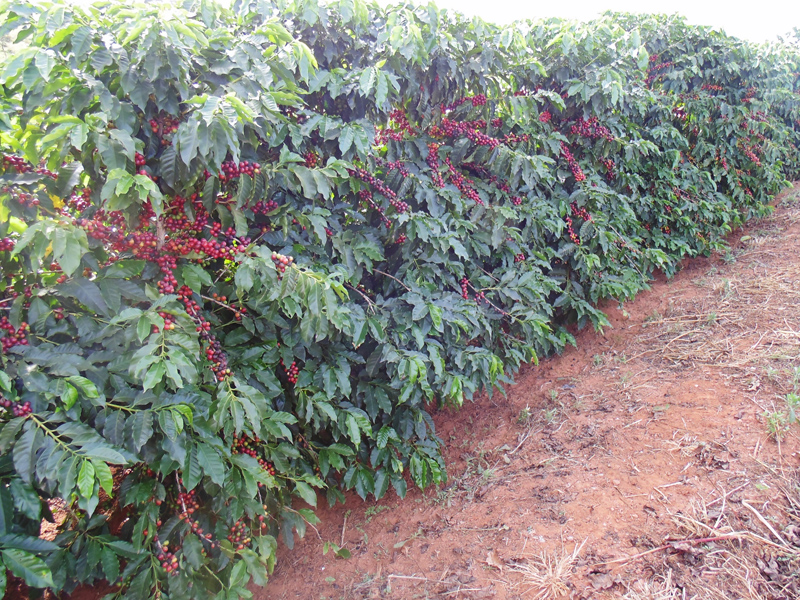BRASILIA--Brazil has been the largest coffee producer in the world for more than 150 years, producing around one third of the world’s coffee, according to the International Coffee Organization [ICO].
Along the way, this country has shared its passion for coffee with another nation that equally appreciates quality cup. In 2021, Brazil exported more than 22,100 tonnes of coffee to Australia, according to Brazilian trade statistics. In value, Australian imports from Brazil reached a record high of $95.9 million in 2021, according to the Department of Foreign Affairs and Trade.
“The success of Brazilian coffee is reflected not just in the volume of production, but also in its quality. Brazil has a vast diversity of small coffee producers who have been innovating and making huge efforts to remain sustainable and competitive through the years,” says Vinicius Estrela, Director of the Brazil Specialty Coffee Association [BSCA].
It is one of the missions of the BSCA that the country be recognised as a specialty coffee growing region, as obtaining a premium price has been crucial for hundreds of coffee producers.
“Specialty coffee saved small producers from disappearing, as the only way small Brazilian farmers could sustain their businesses was through premium-grade coffee,” Vinicius explains.
Brazil offers Australian consumers a diverse range of flavour profiles to cater for increasing domestic demand for specialty coffees.
“We are growing very fast to provide the world, especially Australian consumers, with the high quality of Brazilian coffee,” says Vinicius.
Each of the 34 different coffee producing regions in Brazil share different altitudes, as well as different soil, terroir, and weather patterns. In every one of these regions, Brazilian farmers can grow several different varieties of coffee, including traditional and experimental varieties. Farms range from small family plantations of less than 10 hectares to big estates of more than 2000 hectares, as shown in the map of Brazilian coffee growing regions (on page 97).
Producer Luiz Flavio Pereira de Castro from the Mantiqueira de Minas region harvests many varietals on his property Sítio Serra Azul farm, such as Yellow Bourbon, several Catucaí and Arara.
Having grown coffee with his family for more than 85 years, Luiz explains that the secret to success is good soil, good agricultural practices and a lot of work.
“My family and I maintain good soil and crop management practices. Throughout the year I can count on the support of the local cooperative’s technicians. When the harvest season arrives, we harvest the ripest coffee beans and bring the coffee to the coffee washer on the same day,” says Luiz.
“As soon as the coffee is washed, we place it well spread out on the patio and we rotate it at least 12 times a day until it reaches 11 per cent humidity. We then take the coffee to rest in the storehouses. After about 30 days of rest, the coffee is ready for export.”
According to Luiz, it is very important that consumers learn more about how the coffee they drink was produced.
“Seeing people travel to another country to try my coffee makes me very happy. It is great to see our hard work being recognised,” he says.
“We already have a long history of coffee production in Brazil, and we hope to continue leading this sector for hundreds of years to come.”
Brazil has 34 coffee growing regions and produces many different varietals.
Another Brazilian farmer who knows how to grow quality coffee is Maurício Araújo Ribeiro, owner of Fazenda São Gabriel in the Sul de Minas region.
Maurício’s family has been growing coffee for six generations.
“The focus of our entire production is on specialty coffees, mostly Arabica varietals like Mundo Novo, Yellow Bourbon, Topázio, Rubi, Obatã and Catiguá MG2. We work with peeled cherries to produce honey coffees with the mucilage, as well as superior natural coffees, by carefully selecting the beans and making positive natural fermentations to achieve greater sweetness and different flavour profiles,” Maurício says.
He adds that it’s “high time Brazilian specialty coffee received its well- deserved international recognition”.
Maurício says Brazil performs well in every indicator, including environment and social responsibility. The country is a reference for low-carbon agriculture and fair remuneration of workers.
“No other country in the world has a higher level of sustainability and social responsibility that Brazil does. Coffee buyers who come to visit our farms are always positively surprised with what they see,” says Maurício.
“I believe the recognition for everything that we have been doing here is coming, even if slowly. The attributes of our coffee are already far ahead from the rest of world in terms of mechanisation, efficiency, and higher sustainability throughout the entire coffee production chain,” he says.
One thing BSCA’s Vinicius is certain of, is that Brazil will continue to show Australian consumers and the global industry that it can meet increasing demand for quality coffee while addressing how to overcome climate change challenges.
“Brazil is continuously working on research to improve productivity and adjust to climate change. We’re constantly investing in good agricultural practices and post-harvest treatments,” says Vinicius
This article appears in the August 2022 edition of BeanScene.
https://thecooperator.news/global-coffee-exports-gain-slight-increase-says-new-ico-report/
Buy your copy of thecooperator magazine from one of our country-wide vending points or an e-copy on emag.thecooperator.news
